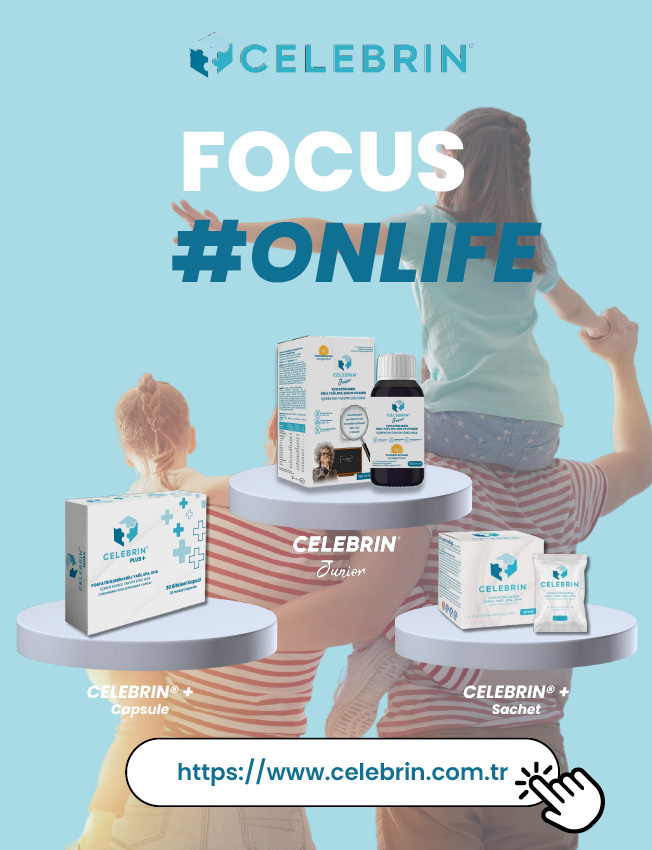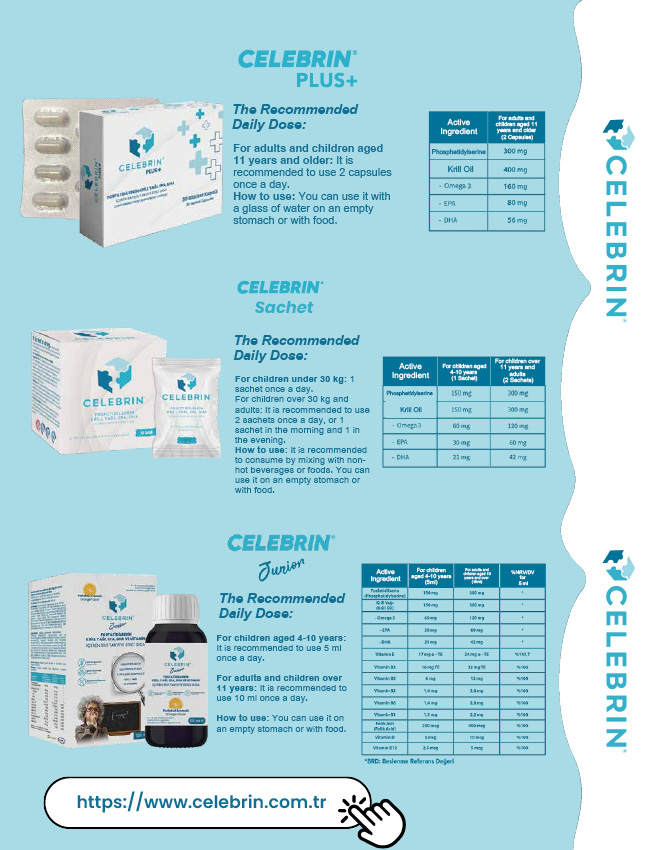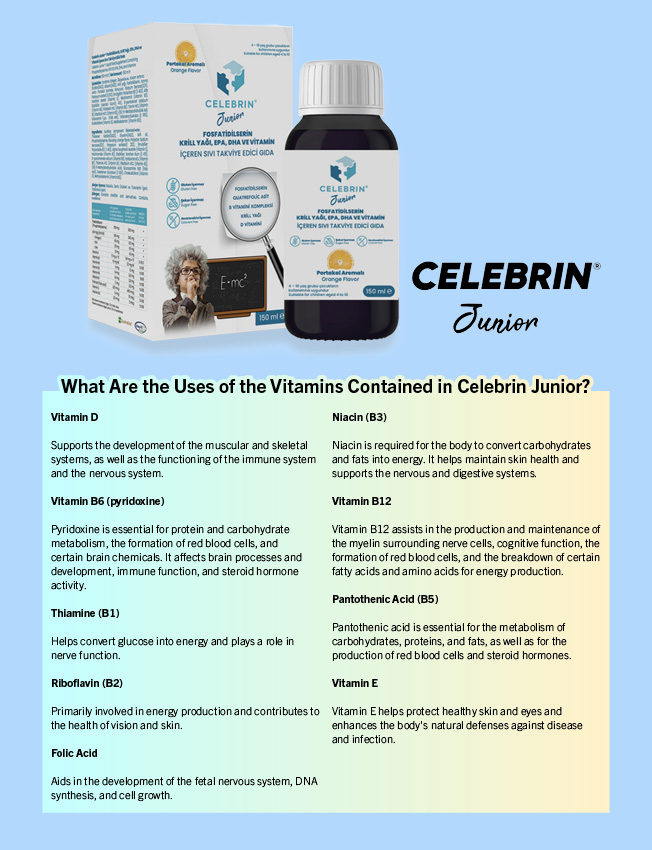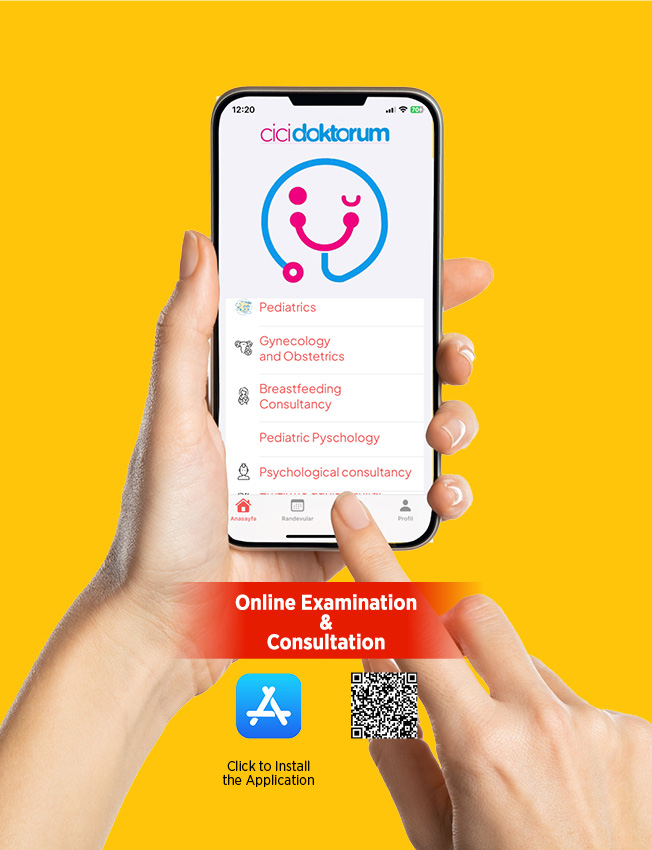Down Syndrome Screening During Pregnancy
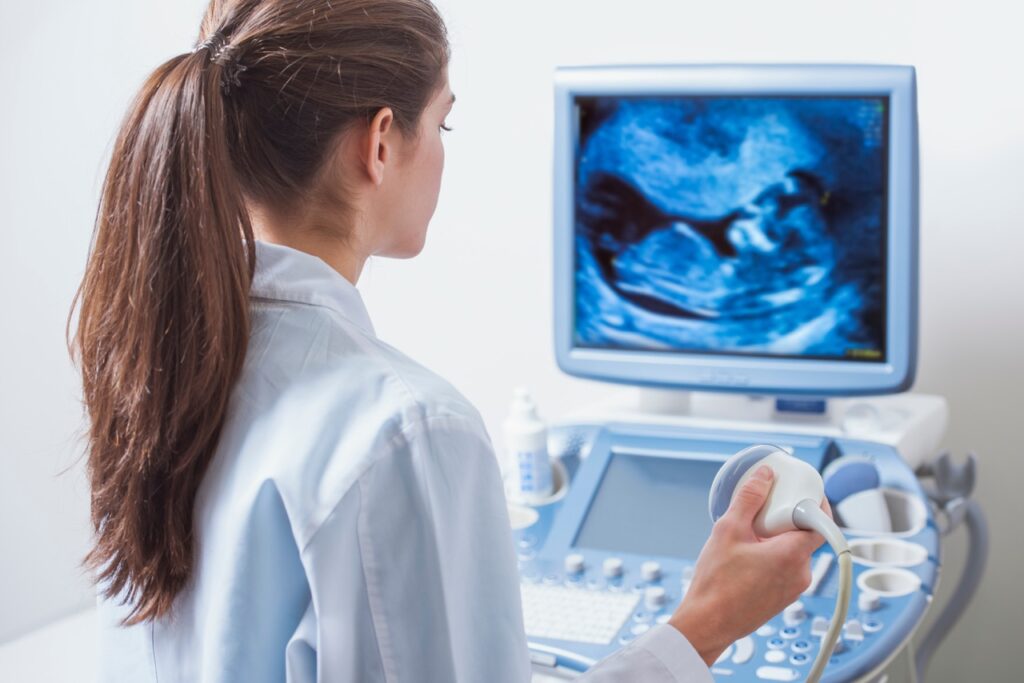
Down syndrome is a condition that occurs when there are three copies of the 21st chromosome instead of the usual two. Chromosomes are the parts that carry a person’s genetic material. Generally, humans have 23 pairs of chromosomes, one set inherited from the mother and one from the father. One of these pairs is the sex chromosomes, which carry information about an individual’s gender.
Out of every 1,000 babies born, 1-2 may have Down syndrome.
In individuals with Down syndrome, there are three copies of the 21st chromosome, resulting in a total of 47 chromosomes instead of the usual 46. The extra chromosome leads to a decrease in intellectual capacity, learning, thinking, and communication skills. Additionally, there are associated health issues that can affect the heart, blood cells, digestive system, and other organ systems. Approximately 1-2 out of every 1,000 babies are born with Down syndrome in the world. These children require lifelong medical and emotional support.
Maternal Age is Important!
The likelihood of Down syndrome increases as maternal age advances. A woman’s reproductive cells, the eggs, form while they are still in their mother’s womb. Over time, exposure to environmental factors can cause genetic material to deteriorate. This deterioration becomes more pronounced especially after the age of 35. Therefore, due to errors in cell division during fertilization, three copies of the 21st chromosome are transmitted to the baby. Thus, Down syndrome is not only a genetic disorder that occurs if it exists in the family. A woman with no family history of Down syndrome may still give birth to a baby with the condition if she is of advanced maternal age.
Screening Tests Should Be Conducted for All Pregnancies
Although the probability of having a baby with Down syndrome increases with maternal age, younger women give birth more frequently overall, so most Down syndrome babies in society are born to younger mothers. Therefore, awareness about screening and diagnostic tests for a condition as common as Down syndrome should not only be limited to older pregnant women, but all expectant mothers should be informed. It is important to explain the pros and cons of these tests to all pregnant women and recommend screening and diagnostic tests.
Fetal DNA Test Accuracy Rate is 99%
Screening tests provide a likelihood of Down syndrome in the baby. A positive result does not necessarily mean that the baby has Down syndrome. Examples of these tests include fetal DNA testing, the first-trimester screening test, triple test, and quad test. Among these, the fetal DNA test has the highest chance of detecting Down syndrome. Diagnostic tests, on the other hand, definitively determine whether or not a baby has Down syndrome.
What are the Screening Tests?
When we look at the timing and general characteristics of screening tests, we can classify them as follows:
– First-trimester Screening Test: Performed between the 11th and 14th weeks of pregnancy, this test measures the nuchal translucency of the baby, the mother’s age, and the levels of two substances in the mother’s blood to determine a risk ratio for Down syndrome. This test can detect about 85 out of 100 babies with Down syndrome.
– Triple and Quad Tests: Conducted between the 16th and 20th weeks, these tests measure the baby’s head circumference, the mother’s age, and substances in the baby’s blood to determine risk. If three substances are measured in the mother’s blood, it is called a triple test and it detects approximately 60-65% of babies with Down syndrome. The quad test measures four substances and increases this detection rate to about 80%.
– Fetal DNA Test: Increasingly performed in recent times, this maternal blood test for fetal DNA has a detection rate for Down syndrome of about 99%. The fetal DNA test screens for genetic disorders in the baby by taking a blood sample from the mother. DNA shedding from the placenta, which nourishes the baby, is found in the mother’s bloodstream. Often, the DNA of the placenta and the baby’s DNA are similar. By examining free-floating DNA that is not connected to any cells in the mother’s blood, information can be gathered about the baby’s genetics.
Diagnostic Tests:
Diagnostic tests include chorionic villus sampling (CVS), which involves taking a needle sample from the placenta during the 11th to 14th weeks, amniocentesis, where fluid is sampled from the baby between the 16th and 23rd weeks, and cordocentesis, where a blood sample is taken from the baby’s cord after the 24th week. If any of these three tests indicate Down syndrome in the baby, the diagnosis is definitive. However, because a needle is inserted into the mother’s womb for these tests, there is a risk of miscarriage, premature rupture of membranes, and preterm labor.
Diagnostic tests may be conducted when high risk is detected in screening tests, ultrasound shows abnormal findings, or if there is a history of giving birth to a child with a genetic disorder. Sometimes, even in the absence of a high risk, expectant mothers may choose to undergo diagnostic testing.
Screening is Very Important Because There is No Cure for Down Syndrome!
There is no treatment for Down syndrome in utero or after birth. When a genetic disorder is identified in the baby, a termination of pregnancy may be offered if the mother and father wish to pursue this option. Expectant mothers who do not wish to terminate their pregnancy can enter into labor well-prepared for this situation. Another important consideration is ensuring that babies with Down syndrome are born in hospitals equipped with neonatal intensive care, cardiology, cardiac surgery, pediatric surgery, and other necessary specialties. It is essential that the initial intervention for these babies is performed correctly and that they have timely access to the required specialties for their health circumstances.
Can Screening Tests Yield False Positives?
There is a chance that Down syndrome screening tests may yield false positives. This has led to a perception in society that “everyone’s baby is said to have Down syndrome but they are born healthy.” Although there are rates of false positives, it should be noted that many babies with Down syndrome receive early diagnosis thanks to these tests. One of the significant advantages of fetal DNA testing over other screening tests is that it has a very low likelihood of producing false-positive results. Although it is currently an expensive test, as it becomes more accessible and affordable over time, the low false positive rates will likely increase pregnant women’s confidence in screening.
